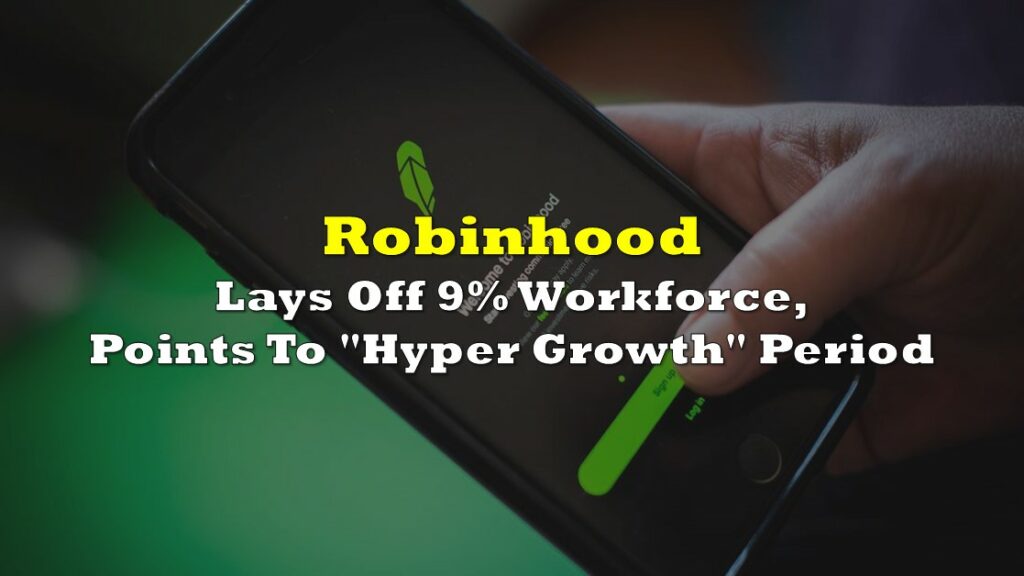On December 14, the U.S. Securities and Exchange Commission (SEC) voted to implement perhaps the biggest regulatory change in stock market trading in nearly twenty years. The long-rumored new rules represent a significant obstacle for Robinhood Markets, Inc. (NASDAQ: HOOD), as it threatens its core zero-commission business model.
Votes on the most controversial provisions were 3-2 with all three Democrats on the commission, including Chairman Gary Gensler, voting for the changes, and both Republicans voting against. The public will be able to comment on the proposed changes through the end of 1Q 2023 (or possibly longer) before the SEC presumably votes to codify the new rules.
Specifically, the most important new rule specifies that brokers must send marketable stock orders of US$200,000 or less into auctions (which each take perhaps three-tenths of a second) where high-speed traders and institutional investors compete to fill the orders at the best prices. Currently, online brokers like Robinhood send more than 90% of their orders to trading firms (also termed market makers or wholesalers).
Under this current process, called payment for order flow (PFOF), an online broker collects fees from the trading firms for routing orders to them. This PFOF technique, which allows Robinhood to charge no commissions, is derided by full-service (commission-charging) brokers who contend that the practice results in a less favorable transaction price for the online broker’s clients.
An online broker can still route orders to a wholesaler under the amended rules, but the conditions for doing so are tough. Wholesalers must be able to beat a key price metric linked to auction behavior. Alternatively, wholesalers could be utilized in the fairly unlikely event of auction failure.
None of this can be considered good news for a firm like Robinhood that relies on the PFOF trade routing methodology for over half its revenue. Note that Robinhood’s PFOF revenue comprised US$680 million of its overall US$1.34 billion revenue for the twelve months ended September 30, 2022.
| ROBINHOOD MARKETS, INC. | |||||
| (in thousands of US dollars, except where otherwise noted) | |||||
| Twelve Months Ended 9-30-22 | 3Q 2022 | 2Q 2022 | 1Q 2022 | 4Q 2021 | |
| Cumulative Funded Accounts (millions) | 22.9 | 22.9 | 22.8 | 22.7 | |
| Sequential Growth | 0.0% | 0.4% | 0.4% | 1.3% | |
| Monthly Active Users (millions) | 12.2 | 14.0 | 15.9 | 17.3 | |
| Sequential Growth | -12.9% | -11.9% | -8.1% | -8.5% | |
| Assets Under Custody (US$ billions): | |||||
| Equities | $51.0 | $51.2 | $68.5 | $72.1 | |
| Options | $0.0 | $0.5 | $1.1 | $2.0 | |
| Cryptocurrencies | $9.0 | $8.6 | $19.7 | $22.0 | |
| Net Cash Held by Users | $4.0 | $3.9 | $3.8 | $2.0 | |
| Assets Under Custody (US$ billions) | $65.0 | $64.2 | $93.1 | $98.1 | |
| Sequential Growth | 1.2% | -31.0% | -5.1% | 3.3% | |
| Trading Volumes: | |||||
| Equity (US$ billions) | $161 | $163 | $189 | $240 | |
| Option Contracts (millions) | 235 | 210 | 237 | 291 | |
| Cryptocurrencies (US$ billions) | $15 | $19 | $23 | $44 | |
| Average Account Balance (US$) | $2,838 | $2,803 | $4,083 | $4,322 | |
| Sequential Growth | 1.2% | -31.3% | -5.5% | 1.9% | |
| Average Revenue Per User (US$) | $63 | $56 | $53 | $64 | |
| Sequential Growth | 12.5% | 5.7% | -17.2% | -1.5% | |
| Options PFOF Revenue | $527,000 | $124,000 | $113,000 | $127,000 | $163,000 |
| Cryptocurrency PFOF-Type Revenue | $211,000 | $51,000 | $58,000 | $54,000 | $48,000 |
| Equities PFOF Revenue | $148,000 | $31,000 | $29,000 | $36,000 | $52,000 |
| Other PFOF Revenue | $6,000 | $2,000 | $2,000 | $1,000 | $1,000 |
| PFOF or PFOF-Type Revenue | $892,000 | $208,000 | $202,000 | $218,000 | $264,000 |
| All Other Revenue | $449,000 | $153,000 | $116,000 | $81,000 | $99,000 |
| Net Revenue | $1,340,713 | $361,000 | $318,000 | $299,000 | $362,713 |
| Sequential Growth | 13.5% | 6.4% | -17.6% | -0.6% | |
| Adjusted EBITDA | ($262,844) | $47,000 | ($80,000) | ($143,000) | ($86,844) |
| Cash | $6,187,000 | $5,962,000 | $6,191,000 | $6,253,477 | |
| Debt – Period End | $160,000 | $154,000 | $203,000 | $151,000 | |
| Shares Outstanding (millions) | 884.8 | 878.3 | 869.8 | 863.9 | |
| PFOF = payment for order flow. |
The SEC’s new rule could ultimately force Robinhood to start charging commissions. It is unclear how that would be received by current and prospective clients. Non-zero commissions could dim Robinhood’s appeal to its young customer base.
Robinhood’s shares look like a tough call here. On the one hand, the SEC’s PFOF news is clearly a setback. On the other hand, Robinhood’s stock market capitalization is about US$7.5 billion, US$6 billion of which is supported by its net cash position, making its enterprise value only around US$1.5 billion. Furthermore, the company’s cash flow has improved markedly in 3Q 2022, and its operating metrics have likewise turned higher in the last few months.
Robinhood Markets, Inc. last traded at US$8.52 on the NASDAQ.
Information for this briefing was found via Edgar and the sources mentioned. The author has no securities or affiliations related to this organization. Not a recommendation to buy or sell. Always do additional research and consult a professional before purchasing a security. The author holds no licenses.









